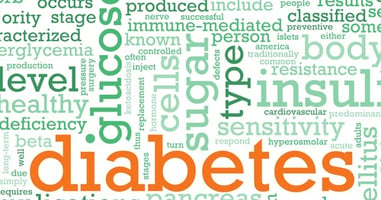Cognitive Impairment in Diabetes Linked to Activities of Daily Living, Lifestyle Factors
 Helping adults with diabetes maintain their activities of daily living (ADL)—general skills involved in self-care and functioning—along with good sleep and physical activity may reduce their risk of diabetes-related cognitive decline, according to a study in the Journal of Affective Disorders.
Helping adults with diabetes maintain their activities of daily living (ADL)—general skills involved in self-care and functioning—along with good sleep and physical activity may reduce their risk of diabetes-related cognitive decline, according to a study in the Journal of Affective Disorders.Why It’s Relevant
“Given the limited efficacy of pharmacological interventions for dementia, identifying modifiable pathways linking diabetes to cognitive deterioration is critical for developing targeted preventive strategies,” the study investigators wrote.
By the Numbers
- The researchers analyzed data from 16,856 adults 45 or older who participated in the China Health and Retirement Longitudinal Study.
-
Participants with diabetes had an 18% greater risk of developing impaired cognitive function than those without diabetes. Cognitive function was a composite score of episodic memory, temporal orientation, numerical ability, and visuospatial skill.
- Impairments in ADL mediated 10.87% of diabetes’ association with cognitive impairment.
- Getting fewer than six or more than nine hours of sleep exacerbated diabetes-related cognitive impairment, with excessive sleep having more pronounced effects.
-
Regular physical activity and living with adult children reduced the negative effect of diabetes on cognition.
The Other Side
The study relied on self-reported measures, which are subject to recall bias and social desirability bias, particularly for the lifestyle variables. In addition, the survey did not reveal whether the participants with diabetes had type 1 or type 2, nor did it account for dietary patterns, glycemic control, and whether participants took their medications correctly, all of which may affect the interplay between diabetes and cognition.
What’s Next
“Future research must elucidate the causality between diabetes and cognition through culturally contextualized longitudinal studies, ultimately optimizing evidence-based cognitive health management for global diabetic populations,” the investigators wrote.
Related Info
(Image: Getty Images/iStock/Renata Hamuda)





